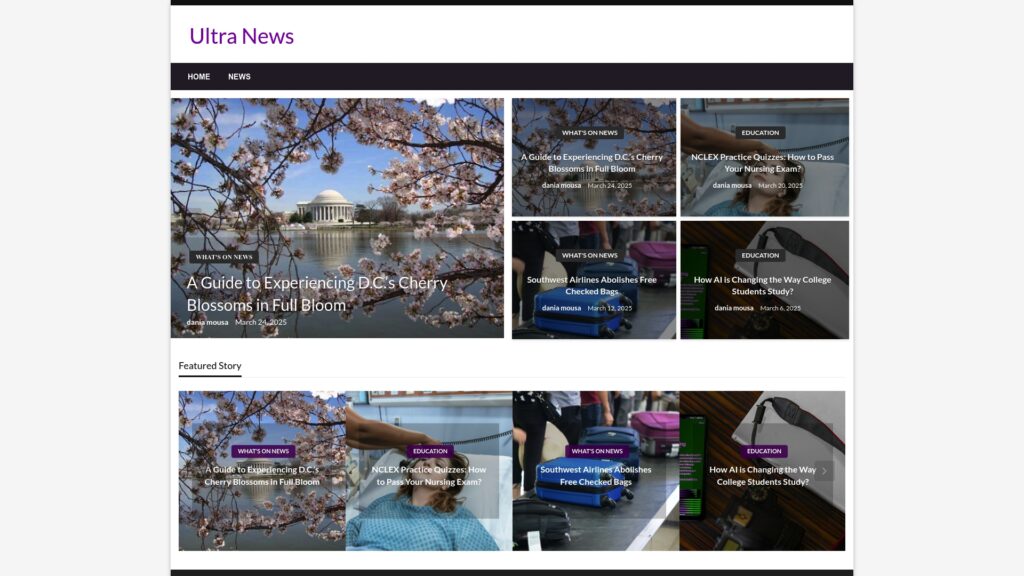
Everyone wants to concentrate better, especially when daily distractions pile up and focus slips away. Here is something that might surprise you. A single night of poor sleep can reduce your attention span by up to 32 percent. The real shock is that most people spend all day fighting distractions without ever fixing what is actually disrupting their concentration.
Table of Contents
- Understanding The Causes Of Poor Concentration
- Proven Habits To Boost Daily Focus
- Tools And Techniques For Sharper Attention
- Adapting Concentration Tips For Different Lifestyles
Quick Summary
| Takeaway | Explanation |
|---|---|
| Understand your concentration barriers | Recognize psychological, physiological, and environmental factors that disrupt focus for personalized solutions. |
| Create a structured environment | A dedicated workspace with minimal distractions and a consistent schedule enhances productivity and concentration. |
| Incorporate mindfulness practices | Techniques like meditation and cognitive exercises train the brain to improve focus and attention span. |
| Prioritize physical health | Regular exercise and proper nutrition are essential for cognitive performance and sustaining mental clarity. |
| Adapt strategies for your lifestyle | Customize concentration techniques to fit professional, educational, and personal contexts for effective results. |
Understanding the Causes of Poor Concentration
Concentration challenges are complex phenomena that impact countless individuals across various life stages. While many people experience occasional difficulties focusing, persistent concentration problems can significantly disrupt personal and professional performance. Understanding the underlying causes becomes crucial for developing effective strategies to improve cognitive function.
Psychological and Mental Health Factors
Mental health plays a fundamental role in an individual’s ability to concentrate. Research from the National Institutes of Health reveals that conditions like depression, anxiety, and chronic stress can dramatically impair cognitive processing and attention span. These psychological challenges create mental noise that fragments focus and reduces an individual’s capacity to engage deeply with tasks.
Anxiety, for instance, generates persistent background worry that constantly diverts mental resources. When the brain is preoccupied with potential threats or unresolved emotional concerns, maintaining sustained attention becomes exponentially more challenging. Similarly, depression can produce mental fatigue and reduce cognitive processing speed, making concentration feel like an insurmountable challenge.
Physiological and Environmental Triggers
Beyond psychological factors, multiple physiological elements can compromise concentration. Sleep deprivation stands as a primary culprit in reducing cognitive performance. When individuals consistently receive inadequate rest, neural networks responsible for attention and information processing become significantly impaired.Scientific research from Stanford University demonstrates that chronic sleep insufficiency leads to decreased neural connectivity and reduced cognitive flexibility. The brain requires consistent, quality sleep to consolidate memories, process information, and maintain optimal cognitive function.
Environmental factors also substantially influence concentration capabilities. Excessive noise, visual clutter, digital distractions, and inconsistent work environments can fragment attention and reduce an individual’s ability to focus effectively. Modern technological landscapes, with constant notifications and information streams, create significant challenges for sustained cognitive engagement.
Lifestyle and Health Considerations
Nutrition, physical activity, and overall health status profoundly impact concentration abilities. Dietary deficiencies, particularly in essential nutrients like omega 3 fatty acids, vitamin B12, and iron, can compromise brain function. Sedentary lifestyles and lack of regular physical exercise further contribute to reduced mental clarity and focus.
Additionally, certain medical conditions such as attention deficit disorders, hormonal imbalances, and neurological variations can inherently affect an individual’s capacity to concentrate. Recognizing these potential underlying causes becomes essential in developing targeted strategies for improving cognitive performance.
By understanding these multifaceted causes of poor concentration, individuals can take proactive steps toward developing personalized approaches to enhance their mental focus and cognitive capabilities. The journey towards improved concentration begins with comprehensive self awareness and a holistic approach to mental and physical well being.
Below is a summary table highlighting the main causes of poor concentration, categorized by psychological, physiological/environmental, and lifestyle/health factors, and their specific impacts on cognitive function.
| Category | Common Causes | Impact on Concentration |
|---|---|---|
| Psychological/Mental Health | Depression, anxiety, chronic stress | Impaired processing, mental fatigue |
| Physiological/Environmental | Sleep deprivation, excessive noise, digital distractions | Reduced attention, fragmented focus |
| Lifestyle/Health | Poor nutrition, lack of exercise, medical conditions | Lower mental clarity, decreased cognitive performance |
Proven Habits to Boost Daily Focus
Improving daily concentration requires strategic and intentional approaches that transform how we work, think, and interact with our environment. Developing proven habits can significantly enhance cognitive performance and create sustainable focus strategies that adapt to various personal and professional contexts.
Structuring Your Environment and Schedule
Research from the University of Massachusetts Dartmouth emphasizes the critical importance of creating an optimal work environment tailored to individual concentration patterns. This involves designing a structured schedule that aligns with personal energy levels and minimizing potential distractions.
Establishing a consistent workspace is fundamental to maintaining focus. This means creating a dedicated area specifically designed for concentration, with minimal visual clutter and noise disruptions. Position your workspace near natural light sources, which can help regulate circadian rhythms and improve alertness. Remove digital distractions by silencing notifications and using website blockers during designated focus periods.
Scheduling becomes equally important in maintaining concentration. Break your workday into focused time blocks, utilizing techniques like the Pomodoro method where you work intensely for 25 minutes followed by a 5 minute break. Medical News Today suggests that these strategic breaks, especially mid morning, can help replenish mental energy and prevent cognitive fatigue.
Mindfulness and Cognitive Training
Mindfulness practices offer powerful tools for enhancing concentration. Regular meditation and breathing exercises train the brain to remain present and reduce mental wandering. Start with short 5 10 minute daily sessions, gradually increasing duration as you become more comfortable with the practice.
Cognitive training exercises can also significantly improve focus. These might include puzzle solving, memory games, or specialized brain training applications that challenge different aspects of cognitive function. Consistent engagement with these activities helps develop mental discipline and improves overall attention span.
Physical and Lifestyle Optimization
Time magazine highlights the importance of holistic approaches to concentration. Physical exercise plays a crucial role in cognitive performance. Regular aerobic activities increase blood flow to the brain, promoting neurogenesis and enhancing mental clarity. Aim for at least 30 minutes of moderate exercise most days of the week.
Nutrition also substantially impacts concentration. Prioritize a diet rich in omega 3 fatty acids, complex carbohydrates, and lean proteins. Stay hydrated and consider supplements that support brain health, such as vitamin B complex and magnesium. Limit caffeine intake to strategic times and avoid excessive consumption that might lead to energy crashes.
Sleep hygiene cannot be overlooked in concentration enhancement. Establish a consistent sleep schedule, creating a relaxing bedtime routine that signals to your body it is time to rest. Aim for 7 9 hours of quality sleep, maintaining a cool, dark, and quiet sleeping environment.
By integrating these proven habits systematically into daily life, individuals can progressively improve their concentration, creating a foundation for enhanced productivity and mental resilience. The key lies in consistency, patience, and a willingness to experiment with different strategies that resonate with personal working styles and preferences.

Tools and Techniques for Sharper Attention
In the fast paced digital world, maintaining sharp attention requires strategic approaches and deliberate skill development. Modern technology offers numerous tools and techniques that can significantly enhance cognitive focus and mental discipline, providing individuals with practical methods to improve their concentration capabilities.
Digital Focus Enhancement Tools
Research from the National Center for Biotechnology Information indicates that cognitive training exercises can measurably improve attention span. Digital applications and platforms now offer specialized brain training programs designed to challenge and enhance mental focus. Apps like Lumosity, Peak, and Elevate provide scientifically constructed games that target specific cognitive functions, helping users develop sustained attention and mental agility.
Productivity applications also play a crucial role in concentration management. Tools such as Forest, Freedom, and RescueTime help users track digital distractions, block potentially disruptive websites, and create structured work environments. These applications allow individuals to set specific focus periods, track productivity, and receive insights about their digital engagement patterns.
Smart noise cancellation headphones and ambient sound generators represent another technological approach to improving concentration. By creating controlled auditory environments, these devices help minimize external distractions and support focused work sessions. Platforms like Noisli and Brain.fm offer customizable soundscapes specifically engineered to enhance cognitive performance.
Mindfulness and Meditation Techniques
Scientific research from the National Library of Medicine demonstrates that mindfulness practices can dramatically improve sustained attention. Specialized meditation techniques like focused attention meditation and body scan practices train the brain to maintain concentration and reduce mental wandering.
Digital meditation applications such as Headspace, Calm, and Insight Timer provide guided sessions tailored to different concentration goals. These platforms offer structured programs ranging from brief 5 minute sessions to comprehensive training modules designed to enhance cognitive control. Guided meditations help users develop mental discipline, teaching techniques for redirecting attention and managing intrusive thoughts.
Breath work represents another powerful technique for sharpening attention. Specific breathing exercises like box breathing, alternate nostril breathing, and rhythmic breathing activate the parasympathetic nervous system, reducing stress and improving mental clarity. Regular practice can significantly enhance an individual’s capacity to maintain focused attention.
Physical and Neurological Training Approaches
Cognitive training extends beyond digital platforms into physical and neurological domains. Neurofeedback technologies enable individuals to understand and potentially modify their brain wave patterns. Devices like Muse headbands provide real time feedback about mental states, helping users learn to regulate their attention and reduce mental distractions.
Physical exercises targeting neuroplasticity can also enhance concentration. Activities like juggling, complex coordination exercises, and specific sports that require intense focus help develop neural pathways associated with attention and cognitive processing. Cross body movements and balance challenges stimulate brain connectivity and improve overall mental performance.
Supplementation and nutrition strategies offer additional support for cognitive enhancement. Nootropic supplements, omega 3 fatty acids, and specific vitamin combinations can support brain health and potentially improve concentration. However, individuals should consult healthcare professionals before starting any supplementation regimen.
By integrating these diverse tools and techniques, individuals can develop a comprehensive approach to sharpening attention. The key lies in consistent practice, personalized strategies, and a willingness to experiment with different methods that align with individual cognitive styles and preferences.
The table below compares different types of digital and physical tools and techniques mentioned in the article for enhancing concentration, alongside the main method used and their core benefit.
| Tool/Technique | Method | Core Benefit |
|---|---|---|
| Brain training apps (Lumosity, Peak, Elevate) | Digital brain games | Improve attention span |
| Productivity apps (Forest, Freedom, RescueTime) | Blocking/tracking devices/apps | Reduce digital distractions |
| Noise cancellation headphones, ambient sound generators (Noisli, Brain.fm) | Sound/environment control | Minimize external distractions |
| Meditation apps (Headspace, Calm, Insight Timer) | Guided mindfulness | Enhance sustained attention |
| Neurofeedback (Muse headbands) | Real-time brain monitoring | Self-regulate focus |
| Physical exercise (aerobic, coordination, juggling) | Activity-based training | Boost neuroplasticity and clarity |
Adapting Concentration Tips for Different Lifestyles
Concentration strategies are not one size fits all. Each individual’s lifestyle, professional demands, and personal circumstances require unique approaches to maintaining focus and cognitive performance. Understanding how to customize concentration techniques for specific life contexts becomes crucial in developing sustainable attention management skills.
Professional and Corporate Lifestyle Adaptations
Harvard Health highlights the significant challenges professionals face in maintaining concentration amid constant digital distractions and multitasking environments. Corporate professionals require targeted strategies that can be seamlessly integrated into high pressure work settings.
For individuals working in office environments, establishing clear boundaries becomes essential. This might involve creating designated focus blocks, using noise cancellation technologies, and implementing strict communication protocols during deep work periods. Techniques like time blocking, where specific hours are allocated for uninterrupted tasks, can dramatically improve productivity and concentration.
Executives and managers can benefit from morning routine optimization. Starting the day with strategic planning, brief meditation, and prioritizing critical tasks can set a productive cognitive tone. Implementing short mindfulness breaks between meetings helps reset mental energy and maintain sustained attention throughout demanding workdays.
Educational and Student Lifestyle Strategies
Reading Rockets provides insights into concentration strategies specifically tailored for students and educational environments. Research from the National Center for Biotechnology Information emphasizes the importance of mindfulness based interventions in enhancing cognitive performance among students.
Students can implement specialized techniques like the Pomodoro method, which involves focused 25 minute study sessions followed by short breaks. Creating dedicated study spaces free from digital distractions, using active learning techniques, and leveraging individual learning interests can significantly improve concentration. Adaptive study methods such as mind mapping, interactive learning platforms, and collaborative study groups can help maintain engagement.
For students with varied learning styles, customizing concentration approaches becomes crucial. Some might benefit from background music, while others require complete silence. Experimenting with different environmental conditions and tracking personal productivity can help develop personalized concentration strategies.
Lifestyle and Personal Context Modifications
Individuals with varied lifestyles such as freelancers, remote workers, parents, and caregivers require flexible concentration techniques. Recognizing personal energy cycles and creating adaptive work structures becomes paramount. This might involve working during peak productivity hours, creating structured home environments, and developing realistic concentration goals.
Parents and caregivers can implement microlearning techniques and short focused sessions that accommodate unpredictable schedules. Using mobile learning platforms, audiobooks, and bite sized educational content allows for continuous learning and skill development during fragmented time periods.
For individuals with high stress or irregular schedules, integrating stress management techniques becomes critical. Regular physical exercise, maintaining consistent sleep schedules, and practicing mindfulness can help stabilize cognitive performance across different lifestyle contexts.
Ultimately, successful concentration adaptation requires self awareness, experimentation, and a willingness to modify strategies. By understanding personal limitations, strengths, and unique lifestyle demands, individuals can develop robust concentration skills that enhance overall cognitive performance and personal effectiveness.
Frequently Asked Questions
What are some quick strategies to improve concentration?
You can improve concentration quickly by structuring your environment, incorporating mindfulness practices, and using digital focus enhancement tools. Techniques like creating a designated workspace, using timers to break work into blocks, and practicing meditation can significantly boost focus.
How does sleep affect my ability to concentrate?
Sleep has a critical impact on concentration as even one night of poor sleep can reduce attention span by up to 32 percent. Consistent, quality sleep is essential for optimal cognitive function and attention management.
What role does nutrition play in concentration?
Nutrition plays a vital role in cognitive performance. A diet rich in omega-3 fatty acids, vitamins, and minerals can enhance focus and mental clarity. Stay hydrated and avoid excessive caffeine to maintain stable energy levels throughout the day.
How can I adapt concentration techniques to my lifestyle?
Tailor concentration strategies to fit your lifestyle by recognizing personal energy cycles and creating flexible work structures. For example, remote workers might concentrate better in quiet, structured environments, while students can use active study techniques like the Pomodoro method.
Ready to Take Your Concentration Even Further?
You have just learned how factors like poor sleep, digital distractions, and an unstructured environment can hold back your focus. If you are looking for practical news, actionable guides, and educational insights to keep sharpening your mind, you need resources that are clear, current, and always available.

At Ultra News you will find the latest updates and tips on topics that matter most for your mental performance. Explore our ‘Education’ section for new strategies to keep your mind sharp or check out trending stories that help you stay alert and informed throughout the day. Your journey to peak concentration starts with the right information. Visit Ultra News now and discover more guides designed to support your focus and productivity.




